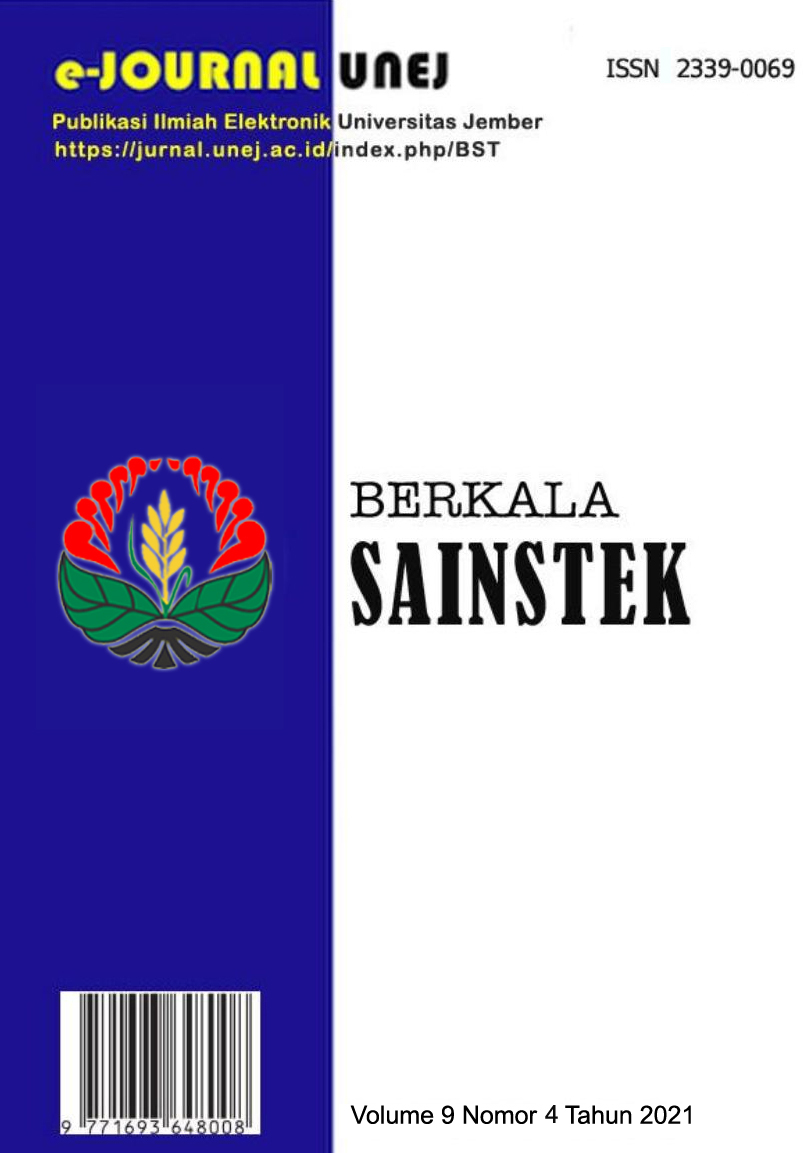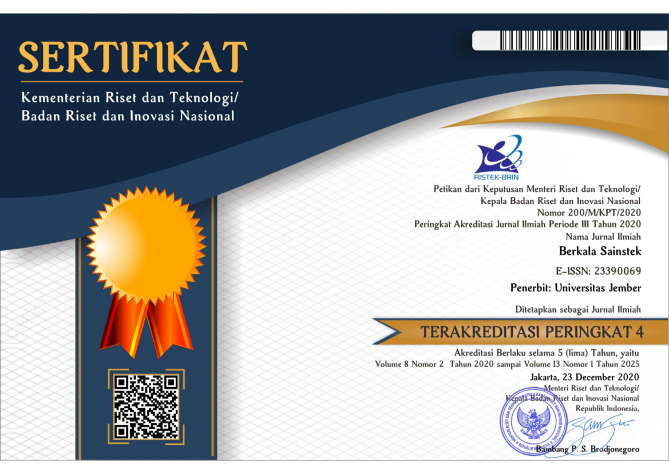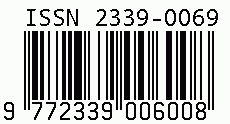Morphology and Economic Value of Macadamia (Macadamia integrifolia Maiden and Betche)
DOI:
https://doi.org/10.19184/bst.v9i4.23380Keywords:
macadamia, morphologyi, economic valueAbstract
Macadamia has a scientific name Macadamia integrifolia Maiden and Betche from the Proteaceae family. The Macadamia plant habitat is in highland areas with an altitude of 1000 masl with a temperature of ≤ 32˚C. Macadamia plants are perennials with tough stems, and the branching is visible (monopodial). The purpose of this study was to determine the morphological characteristics of Macadamia plants and their economic value. The research was conducted at PTPN XII Sempol Plantation, Bondowoso with descriptive-qualitative method. The results of morphological observations showed that macadamia fruit is a dry fruit, indehiscent (when ripe the skin/shell does not break), similar to the type of achene fruit but the shell is thick and hard. Woody stems (lignosus) with monopodial branching type, incomplete leaves consisting of stalks and leaf blades, leaf blades are oblong-elongated, incised independently, pinnate leaf bones, phyllotaxis opposite crosswise. Macadamia trees can produce round fruit of about 20-70 kg per year with a monthly profit of Rp. 8,905,500. The economic potential of the Macadamia plant is very promising, as evidenced by the ongoing import of peeled macadamia with a volume of 6,862 kilograms worth US$ 145,100 (approximately Rp 1.9 billion) or Rp 291,405.29 per kilogram.







